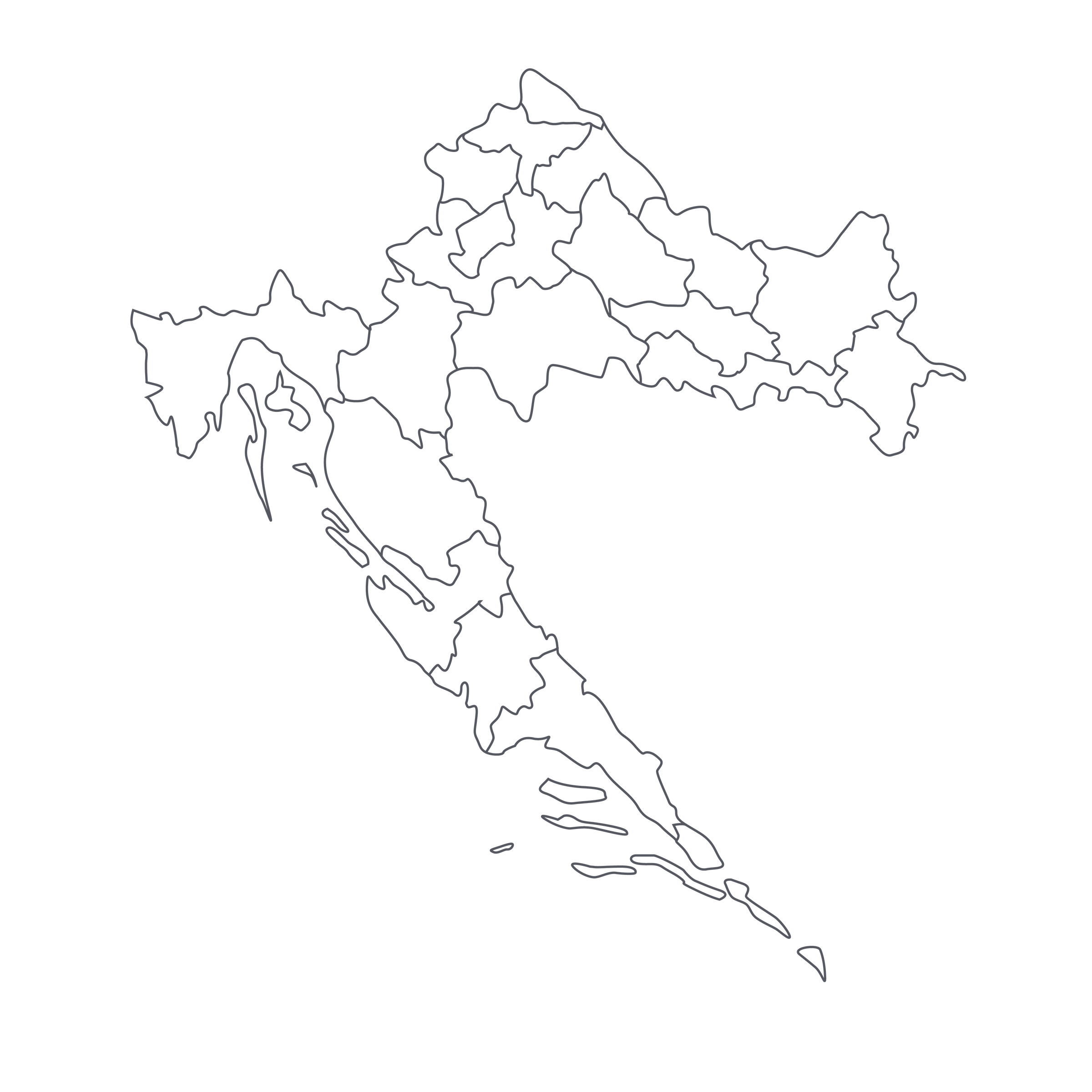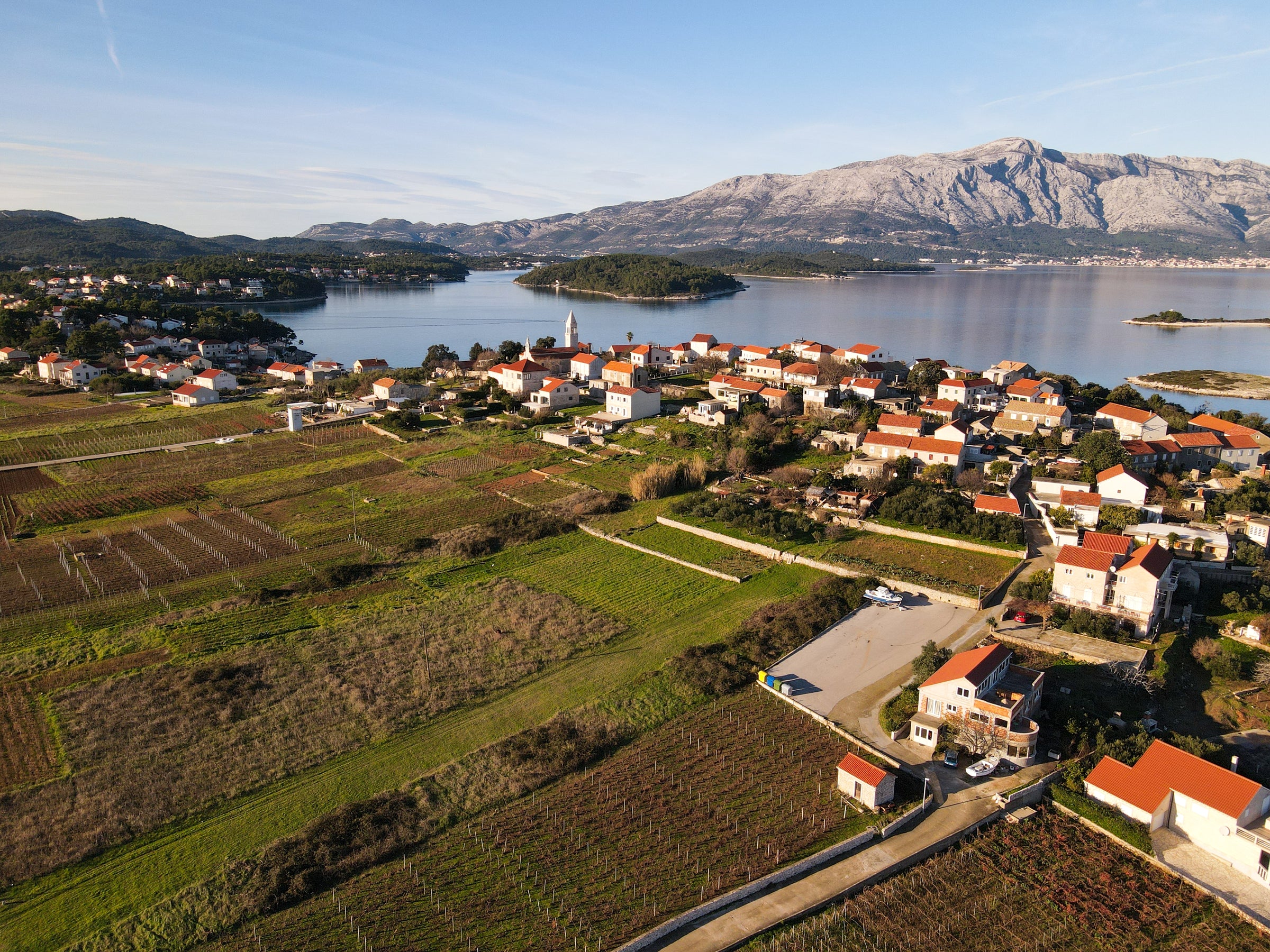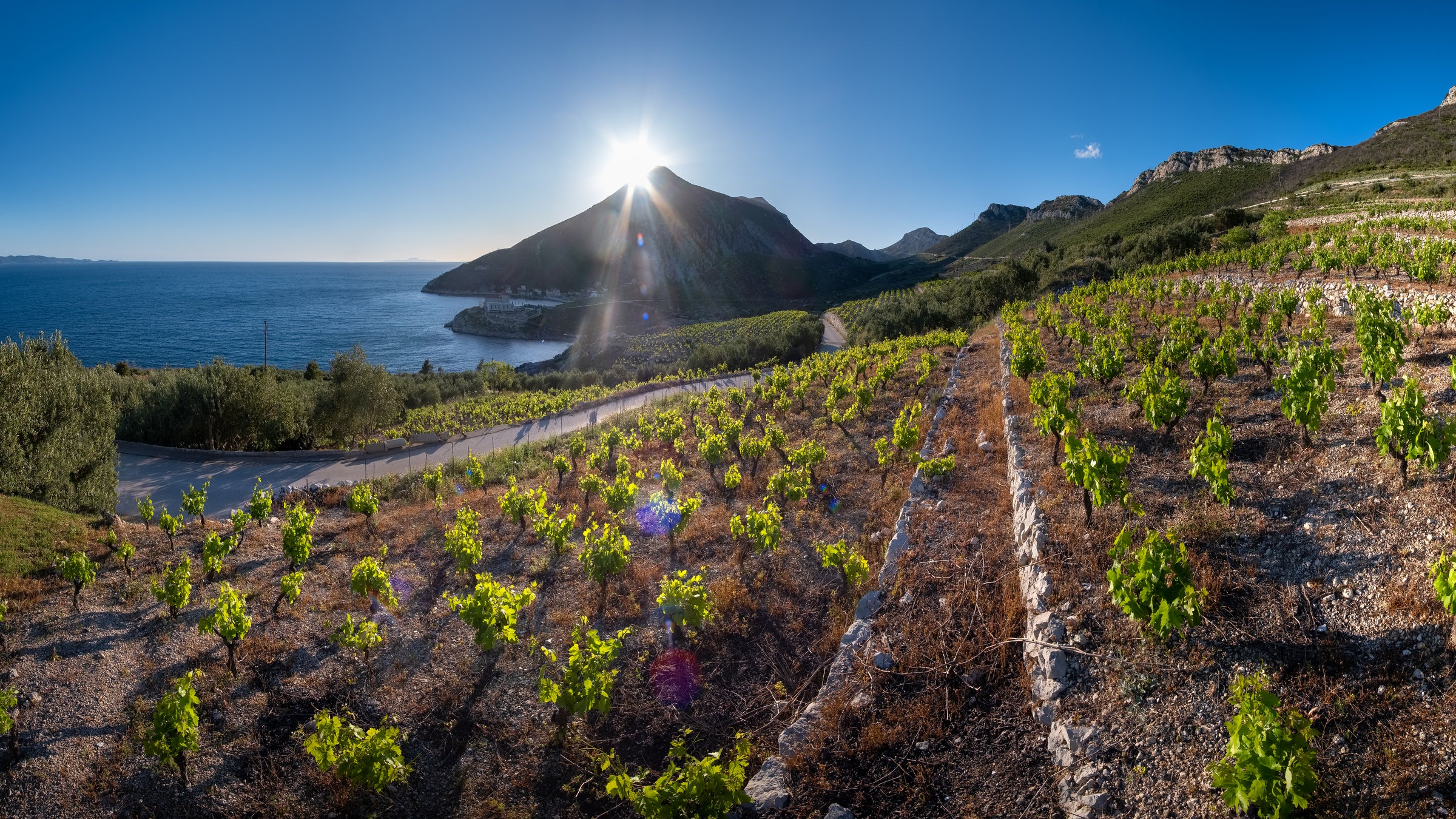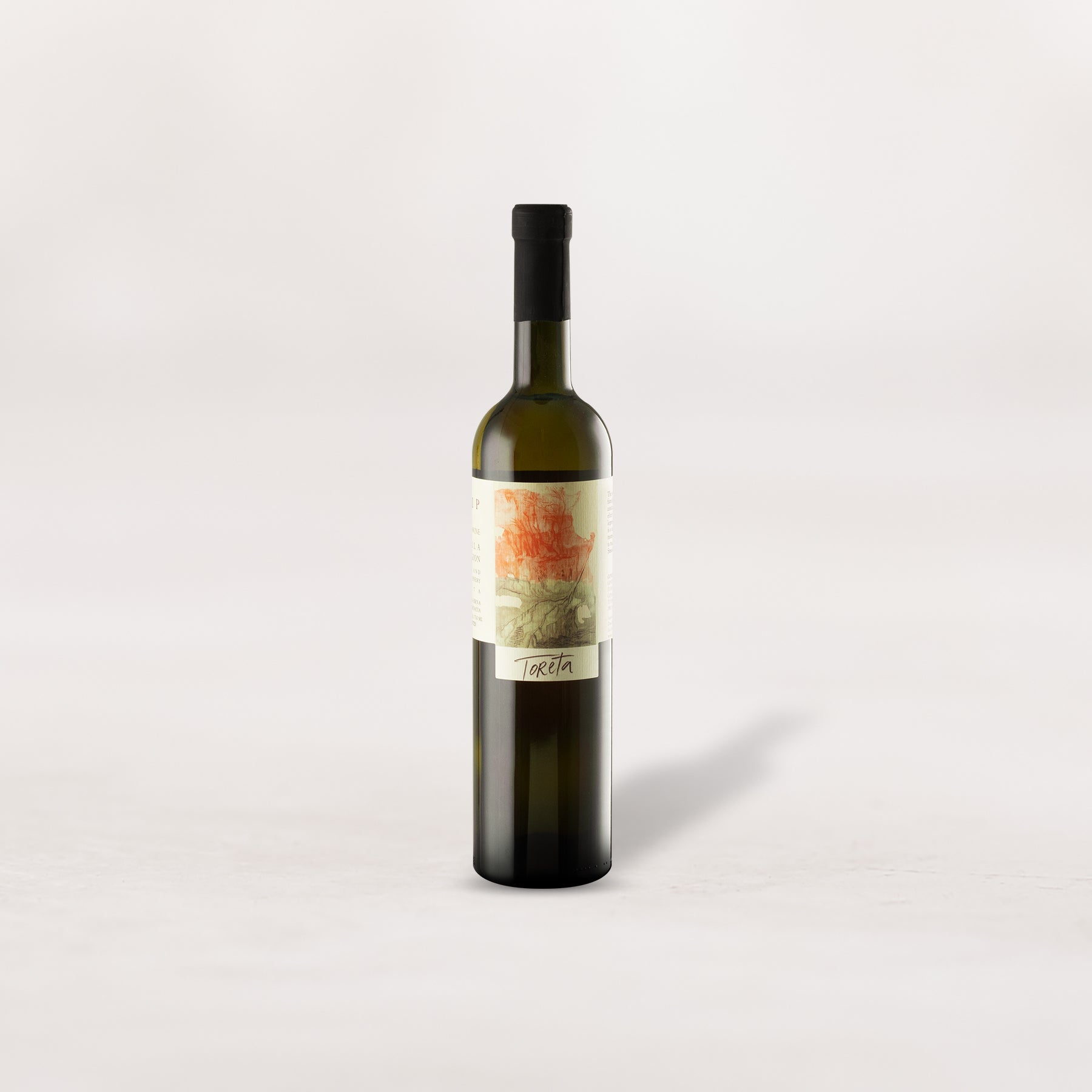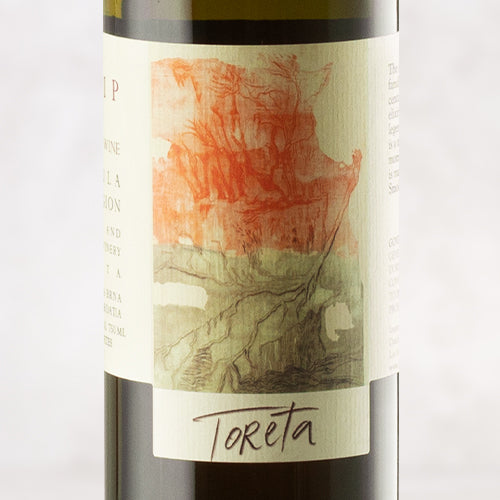The island of Korčula (core-chula) is about halfway between Dubrovnik and Split on Croatia’s long slice of Adriatic coast. Wind-swept, arid, and lushly forested, the island contained thousands of hectares of vineyards in pre-phylloxera times, but these days there are roughly 450 hectares, 70% of which are white grapes (mostly Pošip). The soils contain lots of iron, giving them a reddish cast like those of the Istrian peninsula further north.
Proprietor Frano Banicević only made his first wines in 2013 (albeit with copious notes about the vineyards and winemaking, and some incredible antique winemaking equipment, left by his great-grandfather). He has committed himself to Pošip (pronounced POE-ship), an exotically aromatic white with great acidity and a light touch of Adriatic salinity. Frano farms just five hectares of vines that overlook the Adriatic in the small village of Smokvica, favoring locations where the vines are protected from sometimes-harsh winds.
The wine was fermented in stainless steel and aged mostly in steel; about 20% of the final blend aged briefly in large Slavonian oak casks. Pošip is naturally high in sugar but also has great acidity: as with German Riesling, even fully dry styles of Pošip, like this one, give off a suggestion of residual sweetness.
In the glass, it’s a bright yellow-gold extending to a silvery rim, with aromas of yellow peach, mango, orange blossom, white flowers, wild herbs, and a hint of sea spray. While lifted by bright, lip-smacking acidity, this wine has some sneaky density to it: it’s more structured than one might expect, and has a mineral edge that complements the fruit.
